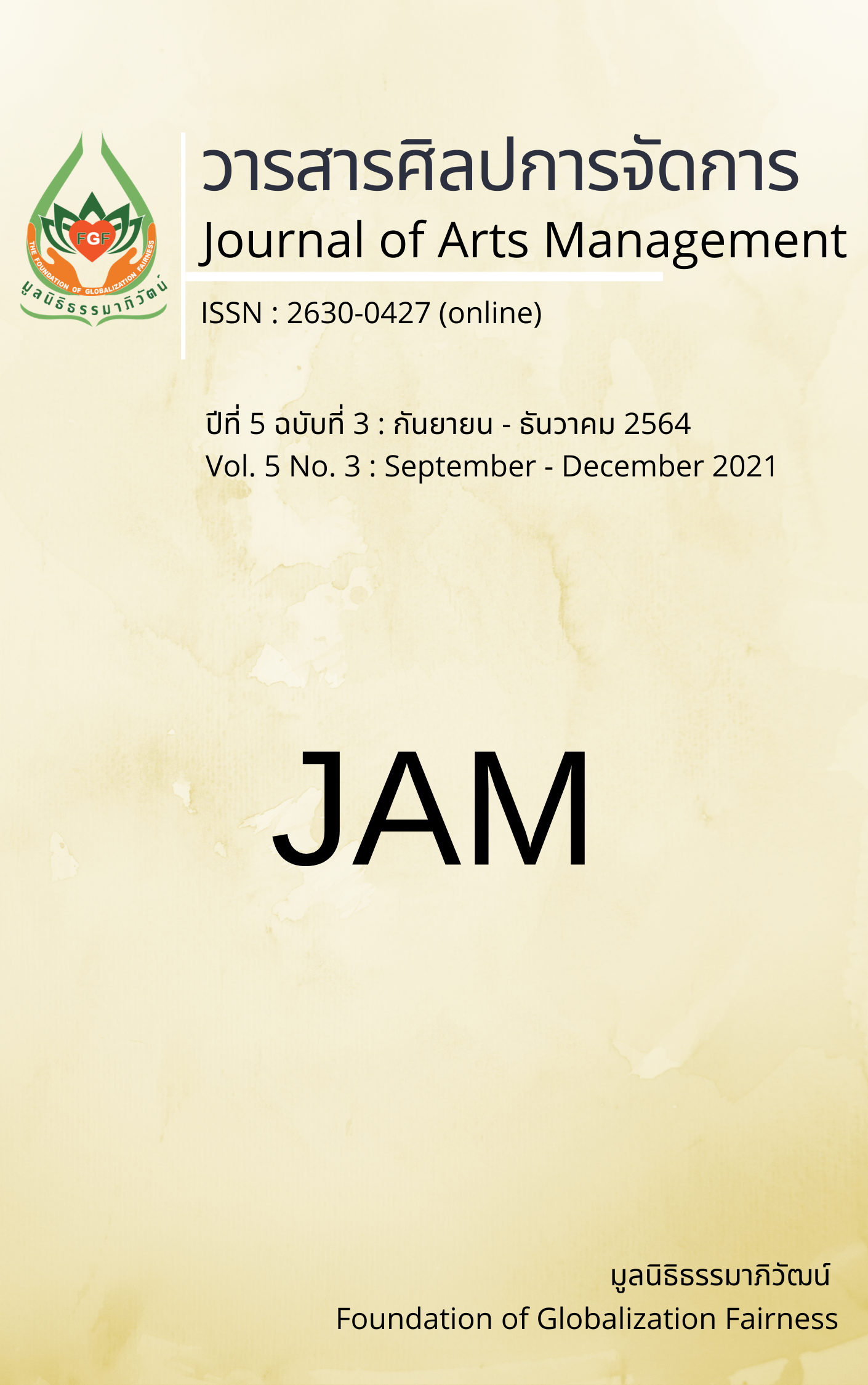The Improvement of Mathematical Argumentation Skills through Learning Activities based on Open Approach in the topic of Similarity for Matthayomsuksa 3 Students
Main Article Content
Abstract
The objectives of this research were to 1) study the guidelines for learning activities based on an open approach to enhance mathematical argumentation skills and 2) develop mathematical argumentation skills for Mathayomsuksa 3 students on Similarity through learning activities based on open approach. The target group is 36 students in a large secondary school in Lopburi Province. The research tools were lesson plans, reflection form and observation form. The mathematical argumentation consisted of 4 elements which are 1) proposing predictions and reasons to support the information and 2) providing evidence to support the information 3) giving different reasons for argumentation and 4) giving reasons for counter-argumentation. The data were analyzed by content analysis.
The results of the study showed that learning activities based on an open approach to enhance mathematical argumentation skills should focused on selecting problems with various solutions, using open-end question to engage students’ argumentation, and building an environment to support effective thinking and showing expression. Overall, students improve their mathematical argumentation skills after learning. For subcomponents, students’ improvement sorted in descending order were proposing predictions and reasons to support the information (85.19%), providing evidence to support the information, and giving different reasons for argumentation (78.70%) and giving reasons for counter-argumentation (75%) respectively.
Article Details
Views and opinions appearing in articles in the Journal of Arts of Management It is the responsibility of the author of the article. and does not constitute the view and responsibility of the editorial team I agree that the article is copyright of the Arts and Management Journal.
References
Banmeewittaya School. (2019). Self – assessment report: SAR 2019. Banmeewittaya School.
Chanaram, C. (2018). A development of open approach learning activity to enhance competence on mathematical reasoning for grade 8 students. Journal of Faculty of Education Pibulsongkram Rajabhat University, 6(1), 118-133.
Driver, R., Newton, P., & Osborne, J. (2000). Establishing the norms of scientific argumentation in classrooms. Science Education, 84, 287-312. https://doi.org/10.1002/(SICI)1098-237X(200005)84:3<287::AID-SCE1>3.0.CO;2-A
Keawam, R. (2016). Using open-ended question in teaching mathematics. Srinakharinwirot Research and Development (Journal of Humanities and Social Sciences), 8(15), 206-211.
Inprasitha, M. (2003). Reforming of the learning process in school mathematics with emphasizing on mathematical process(Full Report). The National Research Council of Thailand.
Jai-on, J. (2019). The development of grade 4 student’ mathematical creativity using lesson study and open approach. Journal of Education Prince of Songkla University, 30(2), 83-96.
Khemmani, T. (2002). Instructional models: Alternative models. Chulalongkorn University.
Lin, S., & Mintzes, J. J. (2010). Learning argumentation skills through instruction in socioscientific issues: The effect of ability level. International Journal of Science and Mathematics Education, 8(6), 993-1017.
Ministry Of Education. (2017). Indicators and core learning standards mathematics according to the core curriculum of basic education B.E. 2551. Agricultural Cooperative Society of Thailand.
National Council of Teachers of Mathematics[NCTM]. (1991). Professional Standards for Teaching Mathematics. NCTM. file:///C:/Users/HP/Downloads/Professional%20Standards.pdf
Nohda, N. (2000). Teaching by open-approach method in Japanese mathematics classroom. Proceeding of the 24th Conference of the International Group for the Psychology of Mathematics Education (PME 24), Hiroshima, Japan: Hiroshima University, 39-54.
Panich, W. (2014). Open approach - applied methods of learning active learning style to learning in The 21st century. GotoKnow. https://www.gotoknow.org/posts/568714
Sonpang, J. (2017). Teacher roles for supporting students’ geometric problem-solving abilities in classroom taught open approach. Journal of Education Naresuan University, 19(4), 65-77.
Suttiamporn, W. (2015). Mathematical activity emphasized on connection among knowledge and ideas for fostering students’ creativity. Journal of Education Naresuan University, 16(4), 93-103.


